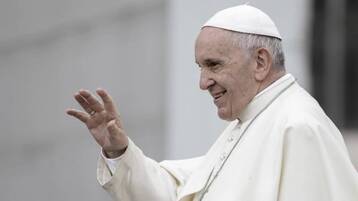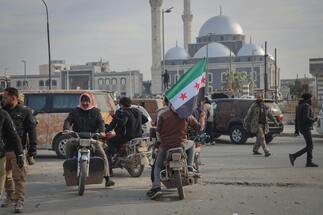-
The Syrian Kurdistan Front's concerns about the Sharaa-Abdi agreement

The Kurdish Front in Syria views with suspicion the agreement signed on March 10, 2025, between the newly appointed Syrian administration leader Ahmad al-Shara and the Commander of the Syrian Democratic Forces (SDF) Mazloum Abdi. Therefore, we have deemed it necessary to clarify the points of agreement and disagreement we have, considering the latter as significant risks.
There is no doubt that we support the fight against the remnants of the previous regime, as mentioned in Article 6 of the aforementioned agreement, but we completely reject any targeting of civilian Alawites. We also fully support Article 3 of the agreement, which calls for a ceasefire across all Syrian territories. Furthermore, we endorse Article 5, which ensures the return of all displaced Syrians to their towns and villages while guaranteeing their protection from the Syrian state. Last but not least, we see Article 2 as a first step towards achieving equality regarding the constitutional rights of Kurds.
However, there are many points of disagreement in this agreement. It does not in any way meet the demands of the Kurdish Front in Syria concerning power-sharing and decentralization; rather, it seeks to have Damascus control all authorities. Likewise, Article 4, which states that “all civilian and military institutions in Northeast Syria will be integrated into the Syrian state administration, including border crossings, airports, and oil and gas fields,” leaves no room for Kurdish administration, neither at the administrative nor political level.
Another important point is that under this agreement, Kurds are not recognized as a nationality, nor is there any provision granting the Kurdish language official status in Syria or even allowing its use as an administrative language in Kurdish areas. Additionally, the agreement does not mention any commitment to establish a fair educational system that guarantees Kurds the opportunity to learn their mother tongue alongside Arabic.
Another point of concern is Article 1 of the agreement, which states, “ensuring the rights of all Syrians in representation and participation in the political process and all state institutions based on competence, regardless of their religious and ethnic backgrounds.” This may initially seem to propose a principle of equality, but in reality, we see it as a systematic exclusion of Kurds, especially since it ignores the long-standing history of systematic marginalization of infrastructure and education in Kurdish regions during Baath rule, which has hindered the development of Kurdish generations. Kurds, who were stripped of their citizenship in the 1960s and lived for decades as “stateless,” were denied higher education and access to many professions, making competition for government jobs “based on competence” unfair. Furthermore, the refusal to recognize Kurdish identity may lead to the prohibition of Kurdish parties in the future, thereby preventing Kurdish representation in the upcoming parliament and government. This concern is compounded by the previous lack of invitations extended to representatives of Kurdish parties to attend and participate in what was referred to as the Syrian National Dialogue Conference, limiting invitations to independent Kurdish figures who only represent themselves.
We also support Article 7 of the agreement, which states, “rejecting calls for division, hate speech, and attempts to sow discord among all components of Syrian society,” but we reject the use of such phrases as a pretext to suppress freedom of expression and restrict open political discussions. Consequently, what defines the term “calls for division”? Do they mean that calls for a decentralized or federative Syria are calls for secession or division? Is defending this considered an attempt to sow discord?
Aside from the issues of the rights of components in Syria, this agreement does not include any clear commitment to achieving gender equality or taking measures to support women and combat historical discrimination against them.
We reiterate that Mazloum Abdi's signing of this agreement as a military leader is unacceptable, as political decisions should be made by politicians, not military personnel. We stress that this agreement undermines all efforts aimed at unifying the Kurdish ranks and forming a joint Kurdish delegation to Damascus to negotiate Kurdish rights.
This agreement, in its current form, merely reinforces absolute centralization and reproduces exclusionary and discriminatory policies, hindering the direction of Syria toward a unified, democratic, and pluralistic state, where true equality among all components can be achieved.
You May Also Like
Popular Posts
Caricature
BENEFIT Sponsors Gulf Uni...
- April 17, 2025
BENEFIT, the Kingdom’s innovator and leading company in Fintech and electronic financial transactions service, has announced its sponsorship of the “Innovation and Sustainable Technology Solutions Competition (GU - IST Solutions), hosted by Gulf University at its main campus.
This strategic sponsorship reflects BENEFIT’s active role in advancing technological innovation and fostering sustainable solutions to future challenges. It also seeks to empower Bahraini youth by enhancing their skills, capabilities, and competitiveness in innovation and solution development—contributing meaningfully to the broader goals of sustainable development across all sectors.
As part of BENEFIT’s active involvement in the competition, the company has announced that Hanan Abdulla Hasan, Senior Manager of Public Relations and Communication, will serve on the competition’s supervisory committee. Her upcoming participation reflects BENEFIT’s forward-looking commitment to championing academic and professional excellence.
Commenting on the occasion, Hanan Abdulla Hasan, Senior Manager of Public Relations and Communication at BENEFIT, said, “We are privileged to support this pioneering initiative, which aligns seamlessly with BENEFIT’s enduring commitment to fostering innovation and nurturing the potential of Bahrain’s youth. Our participation is rooted in a deep sense of social responsibility and a firm belief in the pivotal role of innovation in shaping a sustainable future. Through such platforms, we seek to empower the next generation with the knowledge, skills, and foresight required to develop impactful solutions that address future challenges, in line with the United Nations Sustainable Development Goals 2030.”
Dr. Aseel Al Ayash Dean of the College of Engineering in Gulf University commented, “We extend our sincere gratitude to BENEFIT for their generous sponsorship and support of the Innovation and Sustainable Technology Solutions Competition. This contribution plays an instrumental role in helping us achieve the strategic goals of this initiative, namely, cultivating a culture of innovation and sustainability, encouraging efforts that address the imperatives of sustainable development, and enhancing the practical and professional capabilities of our students and participants.”
The event will bring together a diverse spectrum of participants, including secondary school students, university undergraduates, engineers, industry professionals, entrepreneurs, academic researchers, and subject matter experts representing a wide range of disciplines.
The competition seeks to inspire participants to develop and present innovative, sustainable technologies aimed at addressing pressing environmental, social, and economic challenges. It encourages the formulation of business models that integrate advanced technological solutions with core principles of sustainability. Moreover, it serves as a platform for emerging leaders, entrepreneurs, and innovators to contribute to the advancement of the Sustainable Development Goals, promote the ethos of responsible technology, and demonstrate its transformative potential across various sectors.
Attendees will have the opportunity to view a series of project presentations submitted by participants, covering diverse areas such as eco-friendly product design, smart and sustainable innovations, renewable energy technologies, water conservation and management, waste minimisation and recycling, green architectural solutions, and sustainable transportation systems. Outstanding projects will be formally recognised and awarded at the conclusion of the event.
opinion
Report
ads
Newsletter
Subscribe to our mailing list to get the new updates!





















